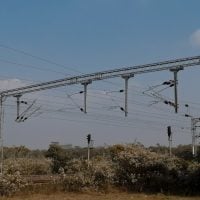Deadline: 30-Jul-24
The European Commission (EC) has announced a call for proposals to improve the occupational safety and health (OSH) systems and practices in the Republic of North Macedonia, in line with the EU standards and practice, leading to a safe and healthy working environment for all workers in the country.
Objectives of the Programme and Priority Issues
- The specific objective(s) of this call for proposals are to contribute to enhancing the implementation and enforcement of OSH regulation in the country through strengthening the capacities of labour inspection and other relevant stakeholders, improving the system of data collection, statistics and reporting on OSH, raising awareness and promoting OSH culture and practices at the workplaces.
- The priorities of this call for proposals are:
- Priority 1: Strengthening the capacities of the State Labour Inspectorate
- Priority 2: Capacity building of relevant national OSH stakeholders
- Priority 3: Improving the OSH information system
- Priority 4: Promoting positive OSH culture
Sectors or Themes
- Occupational safety and health
Funding Information
- The overall indicative amount made available under this call for proposals is EUR 2,500,000. The contracting authority reserves the right not to award all available funds.
- Size of grants
- Any grant requested under this call for proposals must not exceed the below maximum amount:
- maximum amount: EUR 2,500,000.
- Any grant requested under this call for proposals must not exceed the below maximum amount:
Duration
- The initial planned duration of an action may not be lower than 30 months nor exceed 42 months.
Expected Results
- The following main results are expected:
- The administrative capacities of the Labour Inspectorate increased, with improved skills and competencies of the labour inspectors, developed new and modern working methods and procedures, standards and practices of work together with improved and streamlined reporting system and supported by operational web-based software application/tool.
- Strengthened capacities of other relevant stakeholders (ministries/ state institutions, social partners, organizations of professionals) for dealing with OSH policies and practices and for ensuring improved legal compliance with OSH requirements and improved medical services related to OSH.
- Increased level of harmonization of the national OSH legislation (law and by-laws) with relevant EU acquis.
- Reviewed, improved and streamlined system of data collection, statistics and reporting on work related accidents, injuries and occupational diseases in line with the European Statistics on Accidents at Work (ESAW) and European Occupational Diseases Statistics (EODS) methodologies.
- Improved capacities for analyses and use of OSH-related data and for evidence-based OSH policy making.
- OSH culture promoted and awareness raised among targeted audience on the needs and benefits of well-functioning OSH systems and implementation of preventive and protective OSH measures at workplaces.
Types of Activity
- For indicative purpose, the following non-exhaustive list of minimum activities are to be financed under this call:
- Component 1: Strengthening the capacities of the State Labour Inspectorate
- Activity 1.1: Capacity assessment of SLI related to all aspects of OSH competences, activities and tasks;
- Activity 1.2: Developing and implementing an action plan for improvement of the functioning and work of the SLI staff dealing with OSH including operational methodology/ procedures/ standards/ practices of work, instructions, guidelines, check-lists etc., in line with the EU and other international standards and support to its implementation;
- Activity 1.3: Upgrading the information management system and technical resources of SLI – technical specification for hardware and development of web-based solution for work of SLI inspectors (for info on supervisions, reporting, organising and planning work and inspections, storing and managing information,) and existing website and delivery of required equipment;
- Activity 1.4: Preparing capacity building needs assessment, designing and implementing capacity-building curriculum with training materials for the SLI staff, organisation and implementation of study visit to EU member state for SLI staff.
- Component 2: Capacity building of relevant national OSH stakeholders
- Activity 2.1: Preparing capacity building needs assessment, designing and implementing capacity building for the staff of the Ministry of Labour and Social Policy staff involved in OSH including their possible participation in international OSH networks;
- Activity 2.2: Conducting an assessment of harmonisation of OSH legislation with the relevant EU Acquis;
- Activity 2.3: Preparing needs assessment and capacity building of other relevant institutions and social partners for active involvement in OSH (may include also support in conducting sector analysis upon request of national Council on Safety and Health at Work) and upgrade of equipment linked to OSH medical services within public specialized institutions;
- Activity 2.4: Organising and implementing a study visit for stakeholders in OSH to EU member state.
- Component 3: Improving the OSH information system
- Activity 3.1: Reviewing and preparing an analysis of the system and methodology of collecting, recording, processing and reporting data on OSH with detailed plan of actions and measures to implement unified information system of OSH statistics;
- Activity 3.2: Developing and putting in function a single web-based OSH information system for collecting, recording, processing and reporting on occupational accidents and diseases, on new and emerging risks in the workplace as well as on how workplaces manage OSH in line with EU methodologies and practices and purchase of required equipment for functioning of the new system;
- Activity 3.3: Preparing of the necessary legal framework for functioning and effective deployment of the information system on occupational injuries and diseases, as well as other necessary documents;
- Activity 3.4: Preparing training materials on use of new information system and delivery of trainings to all relevant stakeholders’ representatives.
- Component 4: Promoting positive OSH culture
- Activity 4.1: Developing and implementing outreach methodology and plan for promotional and awareness raising activities among various target groups (workers, employers, general public) about the different aspects of the needs and benefits of having well designed and implemented OSH;
- Activity 4.2: Designing and implementing a sub-granting scheme for implementation of small-scale projects supporting social partners or CSOs to promote OSH (following the Activity 4.1)
- Activity 4.3: Preparation of the European Survey for Enterprises on New and Emerging Risks, (ESENER) in North Macedonia in line with EU-OSHA methodology with the sample of cca. 750 companies participating.
- Component 1: Strengthening the capacities of the State Labour Inspectorate
Location
- Actions must take place in the Republic of North Macedonia.
Eligibility Criteria
- Lead applicant(s)
- In order to be eligible for a grant, the lead applicant must:
- be a legal person and
- be non-profit-making and
- be a specific type of organisation such as: a competent Government Department, Public body or relevant mandated body of a Government Department, public authority of a European Union Member State in the fields related to this action or international (inter-governmental) organisation as defined by Article 156 of the EU Financial Regulation (and having the technical and financial capacity, including permanent country office or permanent regional office in North Macedonia or another Western Balkan country, in-country experience of project management and in-house technical expertise in the OSH area, as well as stable and sufficient sources of finance)
- be established in a Member State of the European Union (this obligation does not apply to international organisations)
- be directly responsible for the preparation and management of the action with the co-applicant(s) and affiliated entity(ies), not acting as an intermediary.
- In order to be eligible for a grant, the lead applicant must:
- Co-applicant(s)
- Co-applicants participate in designing and implementing the action, and the costs they incur are eligible in the same way as those incurred by the lead applicant.
- Co-applicants must satisfy the eligibility criteria as applicable to the lead applicant himself.
- Co-applicants must sign the mandate form.
- If awarded the grant contract, the co-applicant(s) (if any) will become beneficiary(ies) in the action (together with the coordinator)
- Affiliated entities
- The lead applicant and its co-applicant(s) may act with affiliated entity(ies).
- Only the following entities may be considered as affiliated entities to the lead applicant and/or to co-applicant(s):
- Only entities having a structural link with the applicants (i.e. the lead applicant or a co-applicant), in particular a legal or capital link.
- This structural link encompasses mainly two notions:
- Control on the annual financial statements, consolidated financial statements and related reports of certain types of undertakings:
- Entities affiliated to an applicant may hence be:
- Entities directly or indirectly controlled by the applicant (daughter companies or first-tier subsidiaries). They may also be entities controlled by an entity controlled by the applicant (granddaughter companies or second-tier subsidiaries) and the same applies to further tiers of control;
- Entities directly or indirectly controlling the applicant (parent companies). Likewise, they may be entities controlling an entity controlling the applicant;
- Entities under the same direct or indirect control as the applicant (sister companies).
- Entities affiliated to an applicant may hence be:
- Membership, i.e. the applicant is legally defined as a e.g. network, federation, association in which the proposed affiliated entities also participate or the applicant participates in the same entity (e.g. network, federation, association,) as the proposed affiliated entities.
- Control on the annual financial statements, consolidated financial statements and related reports of certain types of undertakings:
For more information, visit EC.









































